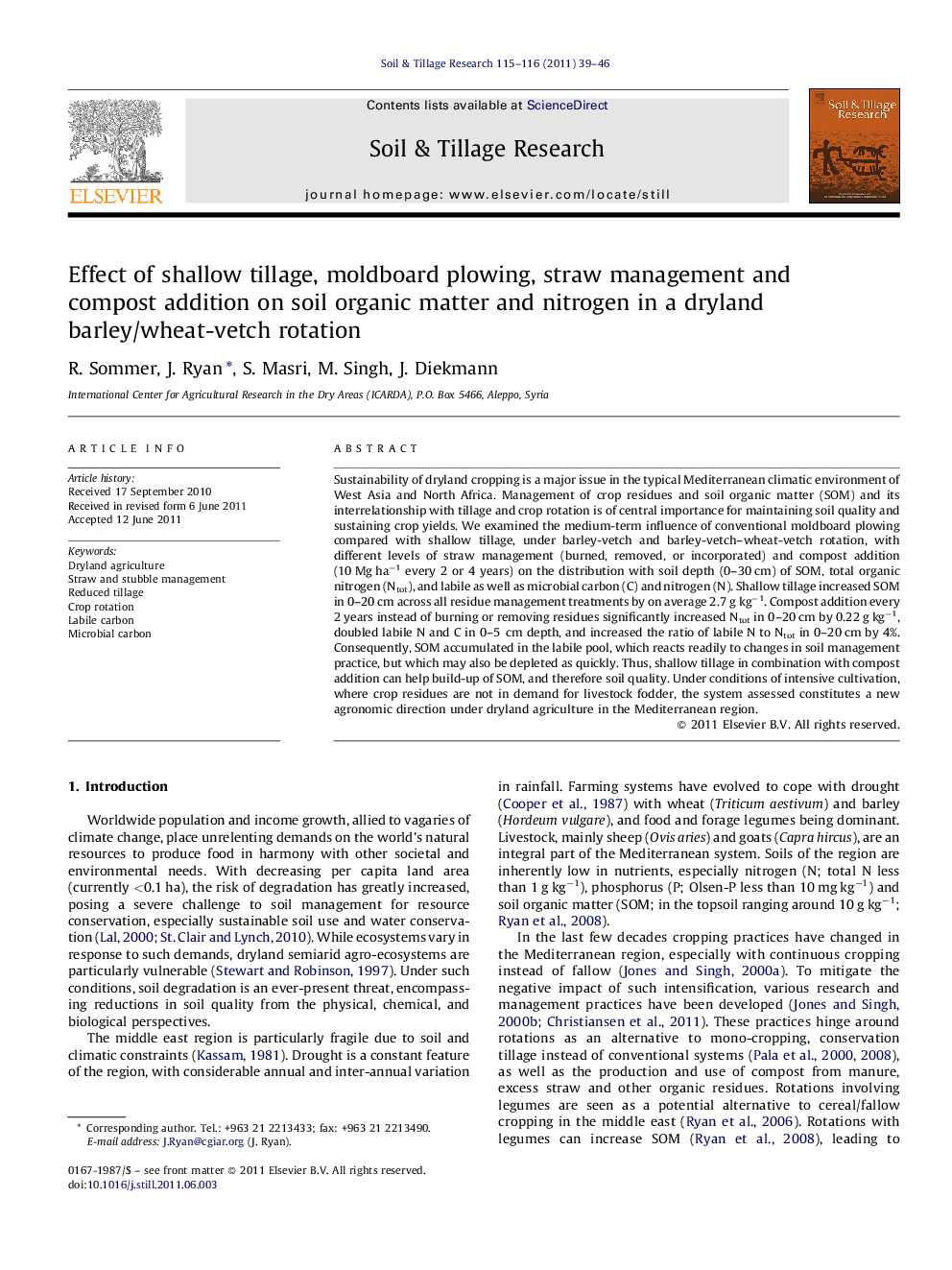| کد مقاله | کد نشریه | سال انتشار | مقاله انگلیسی | نسخه تمام متن |
|---|---|---|---|---|
| 306119 | 513074 | 2011 | 8 صفحه PDF | دانلود رایگان |

Sustainability of dryland cropping is a major issue in the typical Mediterranean climatic environment of West Asia and North Africa. Management of crop residues and soil organic matter (SOM) and its interrelationship with tillage and crop rotation is of central importance for maintaining soil quality and sustaining crop yields. We examined the medium-term influence of conventional moldboard plowing compared with shallow tillage, under barley-vetch and barley-vetch–wheat-vetch rotation, with different levels of straw management (burned, removed, or incorporated) and compost addition (10 Mg ha−1 every 2 or 4 years) on the distribution with soil depth (0–30 cm) of SOM, total organic nitrogen (Ntot), and labile as well as microbial carbon (C) and nitrogen (N). Shallow tillage increased SOM in 0–20 cm across all residue management treatments by on average 2.7 g kg−1. Compost addition every 2 years instead of burning or removing residues significantly increased Ntot in 0–20 cm by 0.22 g kg−1, doubled labile N and C in 0–5 cm depth, and increased the ratio of labile N to Ntot in 0–20 cm by 4%. Consequently, SOM accumulated in the labile pool, which reacts readily to changes in soil management practice, but which may also be depleted as quickly. Thus, shallow tillage in combination with compost addition can help build-up of SOM, and therefore soil quality. Under conditions of intensive cultivation, where crop residues are not in demand for livestock fodder, the system assessed constitutes a new agronomic direction under dryland agriculture in the Mediterranean region.
• Soil organic matter in 0–30 cm was increased with shallow tillage and compost addition.
• Compost addition led to an increase in labile N and C, which may be depleted quickly.
• The increase in soil fertility impacted crop production and yield in dry years.
• Compost production requires amounts of straw that are hardly available on-farm.
• Only when straw is not in demand for fodder, the assessed system seems viable.
Journal: Soil and Tillage Research - Volumes 115–116, October–November 2011, Pages 39–46